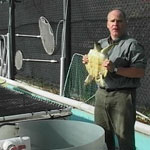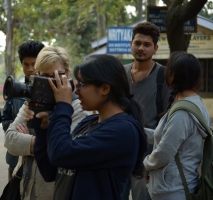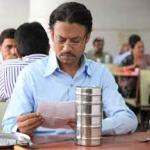One of the common sights in our cities is that ponds that served as excellent reservoirs of water for the community are gradually falling into disuse.
All over, we see ponds’ bunds are congested with human habitations with their sewer directly discarded into the pond. Because the catchment areas have been converted into constructions, the ponds receive very less water in monsoon compared to what they received earlier.
All these have made many ponds look like dry pits making the urban people to consider them as unproductive properties. They want to convert them into purposes that are commercially beneficial to them.
No one really thinks twice before killing a pond. As if they are outdated concepts that need to be discarded. The so called educated urbanites forget that ponds in a monsoon-based topography are one of the best sources to tap rain water in a decentralized manner thereby recharging the watersheds of our river basins. They charge up the local ecology and help provide necessary respite to birds, animals and poor people. They have been playing this role historically and our earlier generations respected this role with all humbleness. They protected ponds.
Unfortunately, the current generation is turning hostile to these ecosystems. They are the ATM generation that expects a commercial benefit as soon as an investment is made. That ponds have been investments of our earlier generations benefits of which we are still reaping in various forms is not a concept they want to buy. Real estate is what matters to them, water can be bought in bottles.
Unfortunately, the government authorities and political leaders too seem to be accepting this fatal logic. The government officials forget the fact that ponds are common property resources that we have inherited and it is the duty of the government to protect them. Communities that reside near a pond should be motivated to protect this resource, not kill them. The Supreme Court has in two important decisions has mandated this for the government. You are custodian of the resource and can’t convert them to other purposes, the apex court has said clearly. So, if the government officials don’t accept this as a moral responsibility, they have a legal mandate to do that. Time they understand it fast before things get worse for our cities.
People, especially, the younger generations in the urban areas would be tempted to convert ponds to play grounds, shops, market complexes. But it is the duty of the government to stop them from taking such destructive steps. They should be made aware that dead ponds would mean acute water scarcity and degradation of urban ecology.
I am citing a recent incident in Sambalpur where a local club decided to kill a pond to create a cricket field and extension of a children’s park. For a decade now a children’s park has been established on one bund of the pond but now that they mobilised some support from the local urban development authority, they decided to encroach upon the pond. Contacted the club members, who say have the mandate of all the colony residents, seem to be all ready to kill the pond. Their argument is that the pond is dead already and was not being used for anything. The tone is like ‘now that some money is there, let’s encroach it and make a play ground out of it.’
But it is questionable how the local urban development authority, which should be custodian of ponds, agreed to a proposal to convert the community’s asset.
The ponds don’t have a voice of their own. It does not mean we make them orphans.







































